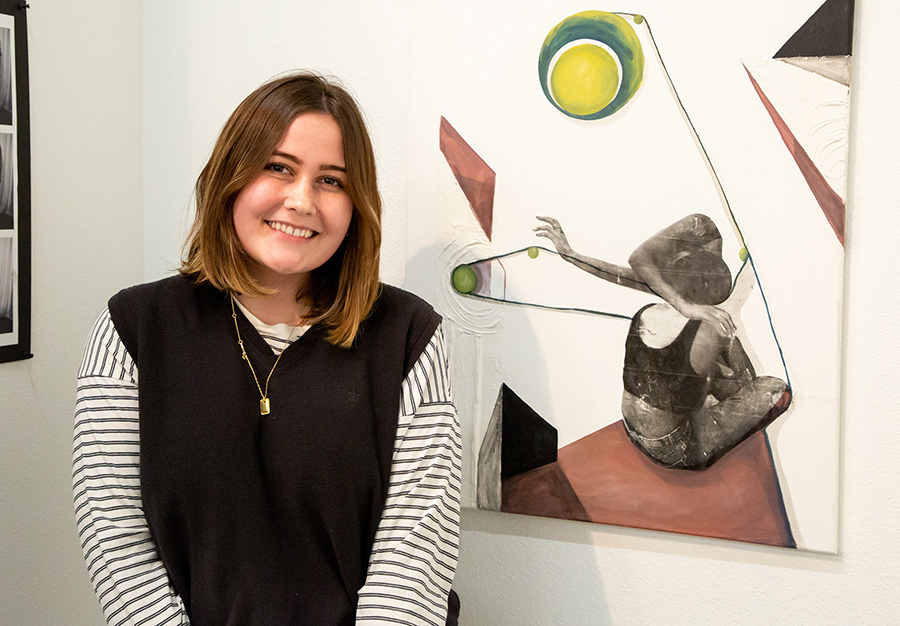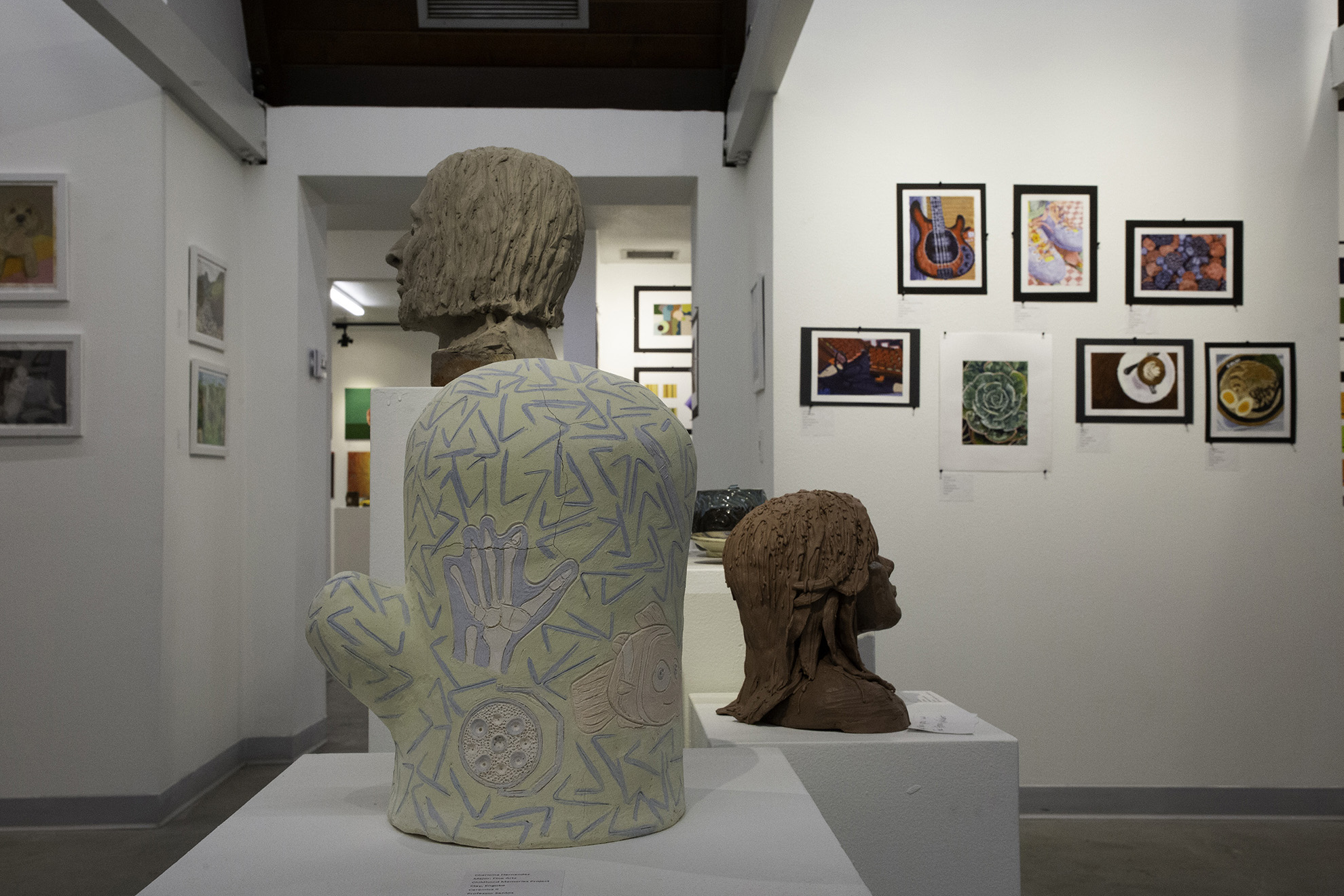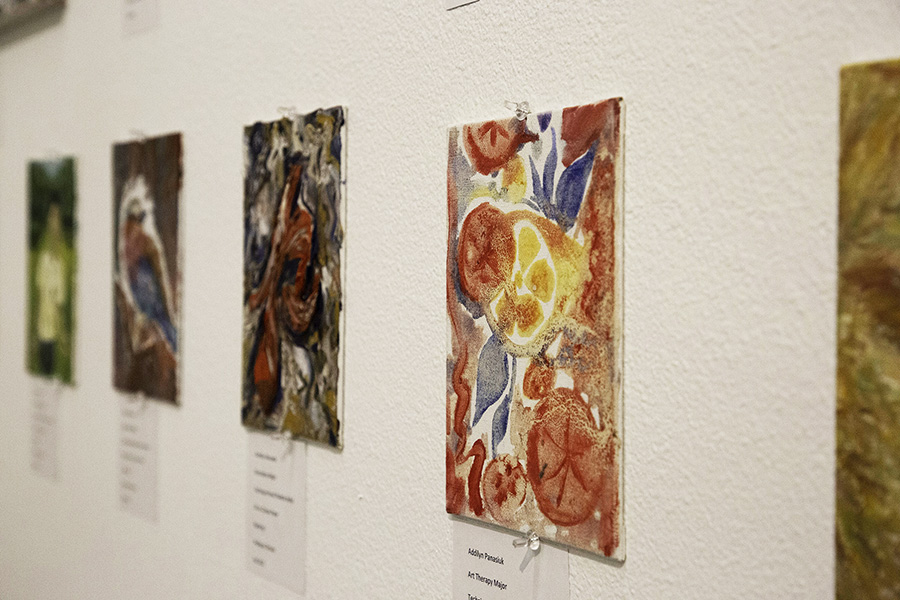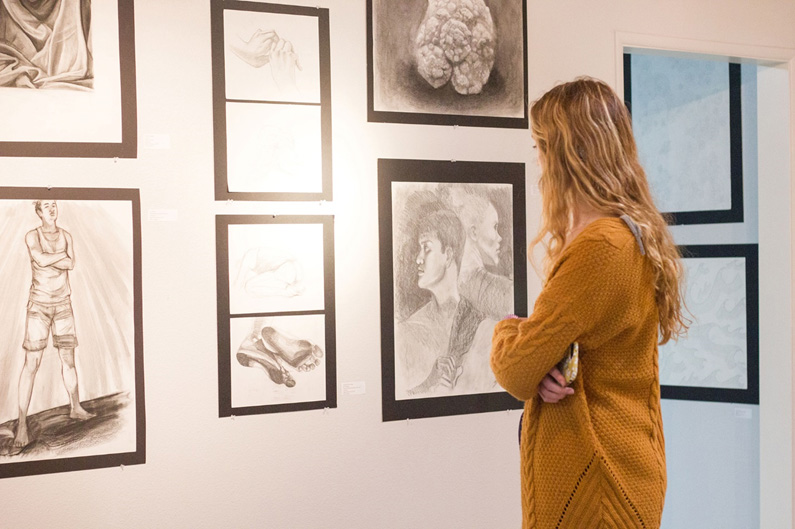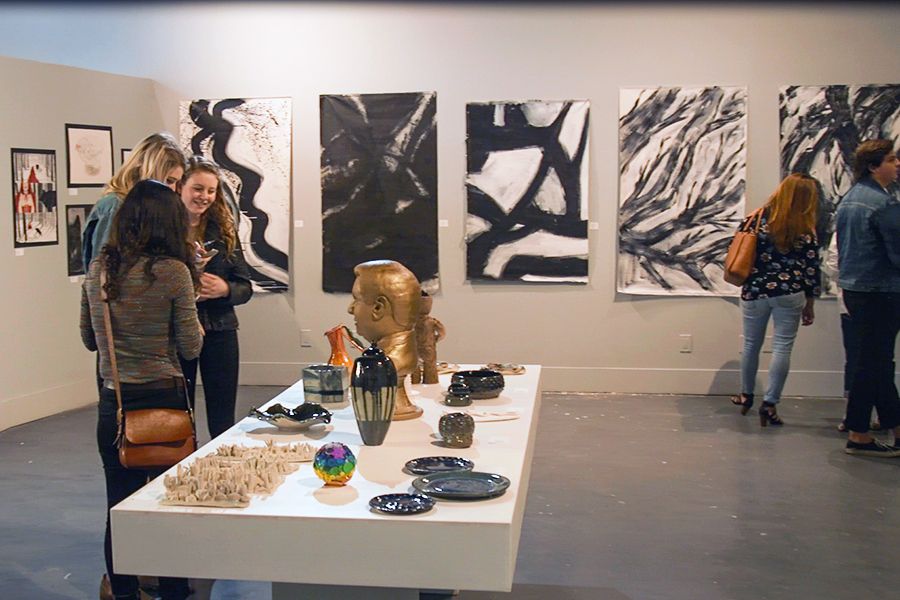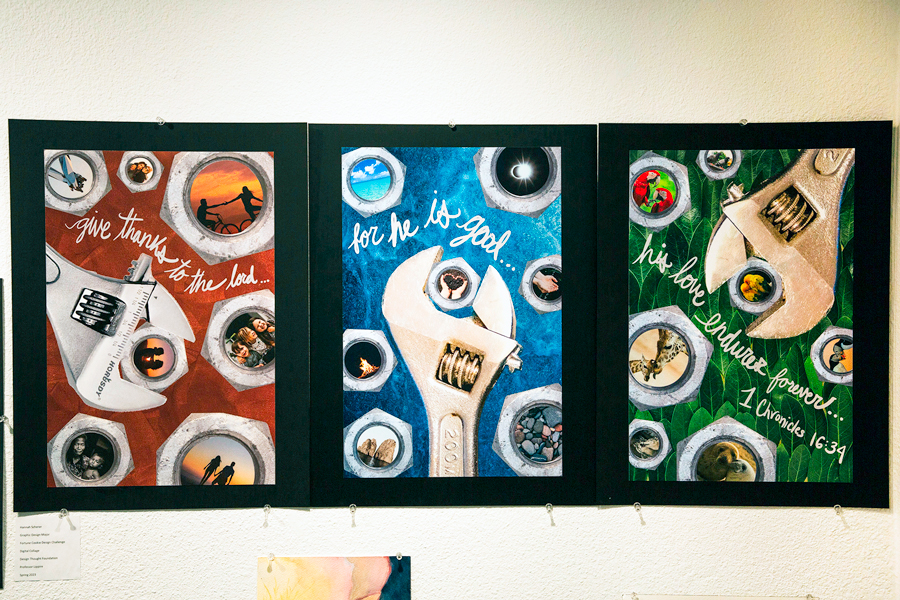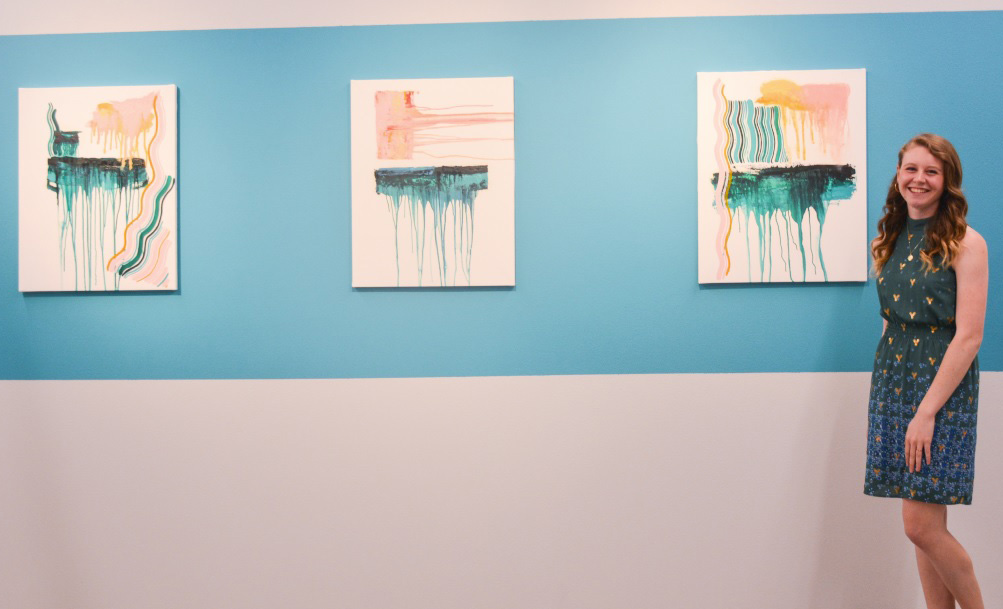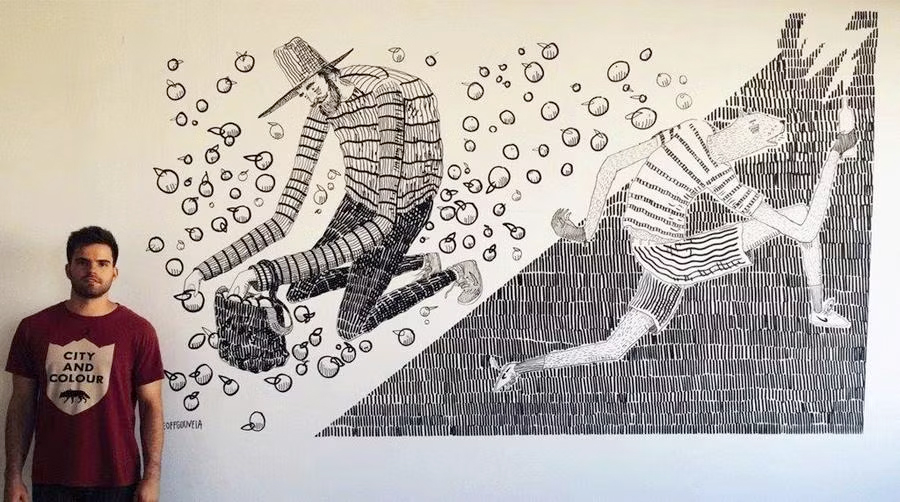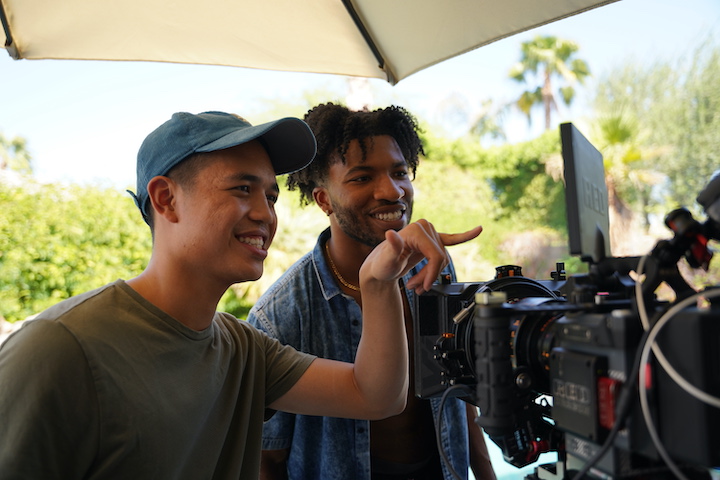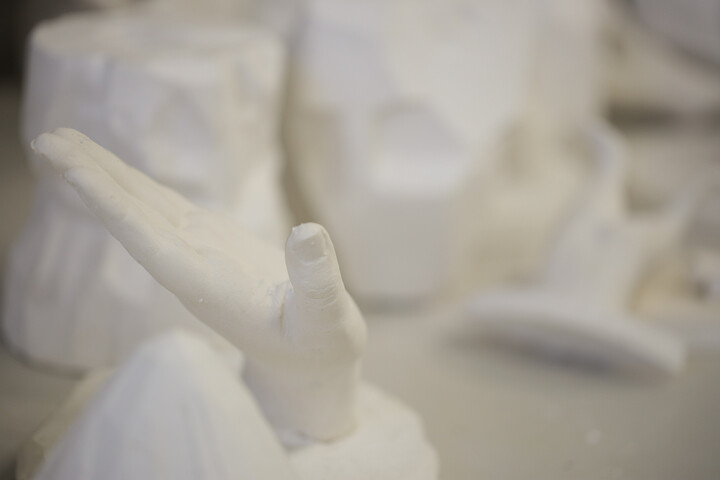CBU's art therapy program offers a flexible undergraduate degree that includes studio art and psychology courses, allowing students to receive a strong foundation and build on it with their choice of art emphasis.
Art Therapy Studies, BA
Students who pursue art therapy simultaneously bring their skills in art and passion to help those in need into a meaningful and strategic profession.
Program Intro
Art therapy is an integrative mental health and human service profession that enriches the lives of individuals, families and communities through active art-making, creative process, applied psychological theory, and human experience within a psycho-therapeutic relationship.
Why Major in Art Therapy Studies at CBU?
Be Prepared for Graduate Work
The CBU art therapy program is a joint program between the award-winning College of Architecture, Visual Art, and Design and the renowned College of Behavioral and Social Sciences that prepares students for graduate work in art therapy or to pursue graduate work in counseling (marriage and family therapy OR marriage and family therapy with an emphasis in art therapy). Additionally, the art therapy program aligns itself with the educational standards set forth by the American Art Therapy Association ensuring that graduating students meet all necessary requirements to pursue graduate studies in art therapy.
Study Both Art and Psychology
Program Details
ART 301: Color, Theory, and Application
This is a combination studio and lecture course that focuses exclusively on issues of color, its aesthetic, symbolic and psychological dimensions, as related to visual expression.
PSY 376: Art Therapy
his course is an introduction to the field of art therapy. The modern theories, methods and systems of art therapy will be surveyed.
DES 110: Creativity: Process and Purpose
This course provides an introduction to creativity through discussion and project-based learning. The course provides overview and practice of creative processes (e.g. ideation, research, empathy, proto-typing, etc), in-depth discussion of the theological foundations for creativity, and practice for developing creative habits.

Kristi Lippire, M.F.A.
Professor of Visual Art
Program Coordinator, Fine Art
Advisor for Art Club
Office Phone: 951-552-8736
E-mail: klippire@calbaptist.edu
Office Location: Adams Business Park, building C space 33

Katherine Papineau, Ph.D.
Professor of Art History
Associate Dean, College of Architecture, Visual Arts and Design
Office Phone: 951-552-8816
E-mail: kkaford@calbaptist.edu
Office Location: James Building, Room 453
- Content: Majors will demonstrate discipline knowledge and skills (theories, concepts,
and terms of the discipline) through the ability to:
- Explain the major historical theories of psychology and their influence on developing theories, the individual and society.
- Understand and critique methods of critical analysis/research and articulate their influence on the field of psychology and an understanding of human behavior.
- Verbalize and analyze the terminology of psychology and how it relates to professional practice.
- Critical thinking: Majors will utilize skill in analysis, synthesis, and use of evidence;
problem solving (reflective and analytical) through the ability to:
- Think critically about psychological constructs, theories and research methodology through the use of comparison and contrast, problem solving and the integration of evidence from diverse contexts (research, professional practice and daily living) and worldviews (religious, ethnic, cultural).
- Use psychology concepts to explain personal experiences and recognize the limitations of personal experience in understanding psychological phenomenon
- Differentiate the science of psychology from pseudoscience/anecdote
- Use quantitative and/or qualitative analyses to argue for or against a particular hypotheses within specific contexts (research, professional practice and daily living)
- Communication: Majors will effectively use appropriate speaking and writing skills;
technology literacy; research skills as demonstrated though the ability to:
- Construct thorough literature reviews using APA style and applying fundamental strategies such as thesis development, revision, and correct grammar and syntax
- Display and communicate quantitative data clearly and concisely using basic statistics, graphs and tables
- Deliver effective oral presentations in a variety of communication settings appropriate to diverse audiences, integrating visual elements and professional demeanor
- Lead and participate effectively in group discussions, applying active listening skills and demonstrating respect for diverse views
- Select the most appropriate sources and databases for accessing and obtaining needed information. Evaluate the reliability, validity, quality, timeliness, potential biases, and overall credibility of these sources
- Integrity/values: Majors will synthesize academic integrity, discipline specific ethical
issues; an understanding of ethics; respect for social diversity with their discipline
through the ability to:
- Understand and demonstrate academic integrity, including honor code requirements within university, community and professional settings
- Apply ethical standards of the professions of psychology, sociology and anthropology to research and practice
- Understand the Christian worldview and apply Biblical values and moral/ethical principles to research and practice
- Demonstrate sensitivity to issues of social diversity and exhibit respect for socially diverse groups
- Project management: Majors will exhibit team work skills and informed participation
in multiple levels of community applying academic studies to the workplace and professional
environment through the ability to:
- Work collaboratively and respectfully with individuals with diverse backgrounds
- Adapt to new workplace environments and changing professional needs
- Develop leadership and self-management skills to work effectively in a variety of social and group contexts
- Respond appropriately to feedback from supervisors and team members
- Apply academic knowledge to a variety of work and social contexts to enhance interactions and performance
- Creative Thinking: Majors will demonstrate the ability to engage in associative/spatial thinking dynamically channeled through various media through directed formal and conceptual problems as well as self-determined projects.
- Media Fluency: Majors will demonstrate an ability to command the inherent dynamics of a variety of 2&3 dimensional media as applied to directed and self-determined expressive goals.
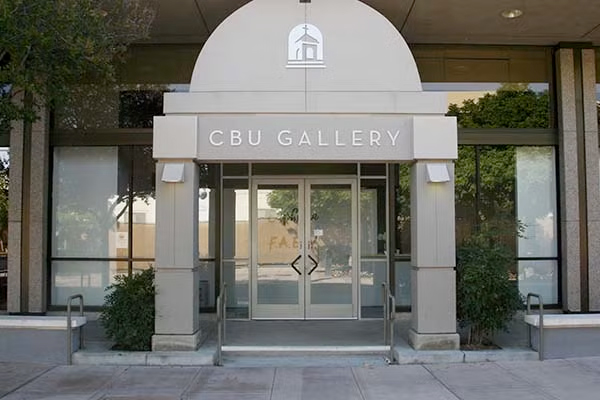
Student Opportunities: CBU Gallery
CBU Art programs not only provides a high quality visual arts education, but are also dedicated to instilling in students the role that art can play in community, and in service of community. Located at the heart of campus, the CBU Gallery allows CBU Art students to both showcase work and gain hands on experience in gallery management.
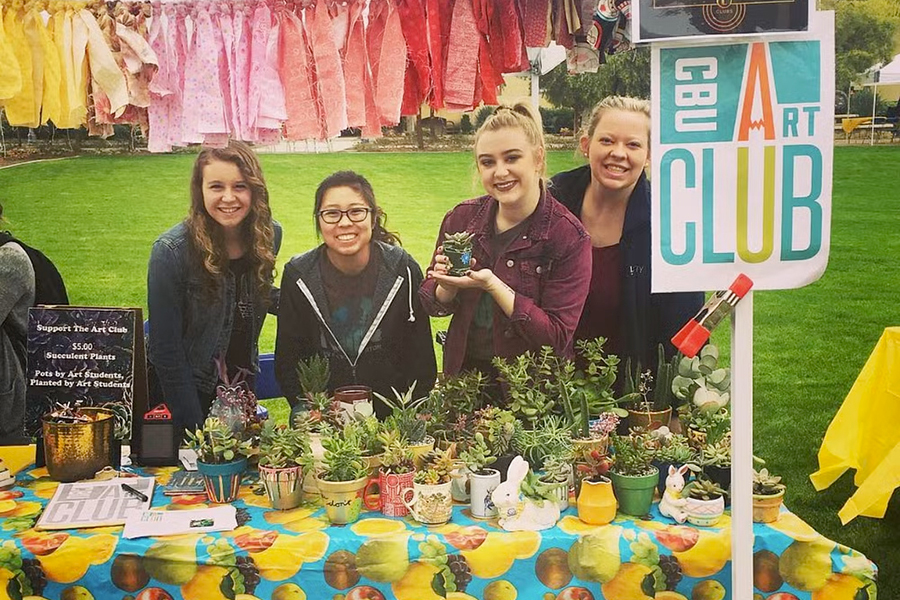
Student Opportunities: Art Club
CBU Art Club brings together visual artists to simultaneously produce art in community, and serve the community. From community art projects, to utilizing art to raise funds for community projects, the CBU Art Club serves.
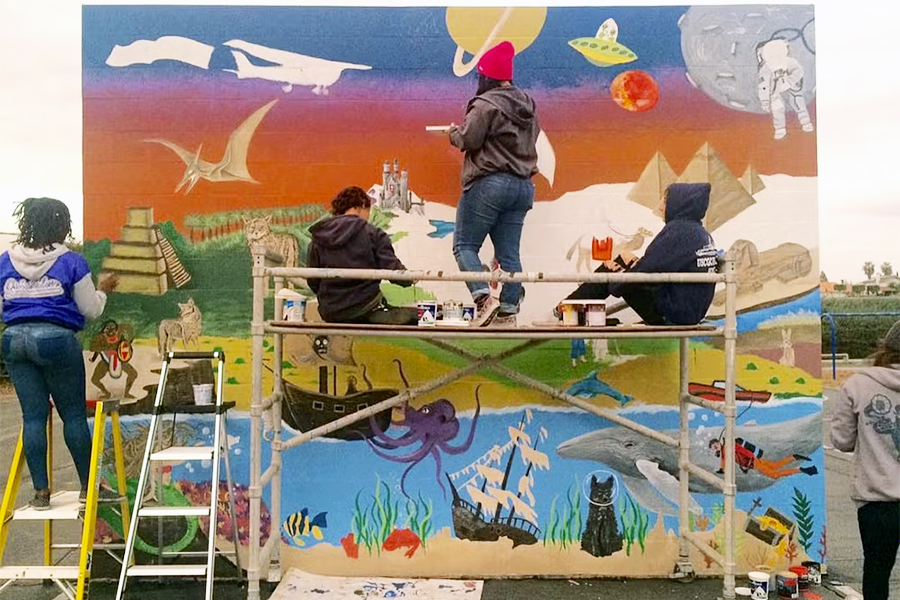
Student Opportunities: Community Service
CBU art is dedicated to art in community and art in service of community. On a regular basis CBU art students bring their artistic talents out of the classroom and into the community. Pictured left is a community service project whereby art students painted a mural on a local elementary school's play yard.
Career Possibilities
The pre-professional art therapy bachelor's degree prepares students for graduate study in the field of art therapy or counseling by fulfilling the undergraduate requirements for graduate school admission set forth by The American Art Therapy Association. Certified practitioners of art therapy integrate the practice of studio arts and the fields of human development with current theories and models of counseling. Career opportunities below may require additional education.
- Art Therapist
- Marriage and Family Therapist
Related Programs
Ready to See Differently?
Discover. Define. Ideate. Prototype. Test. Our demand of the student is simple. See Differently.


